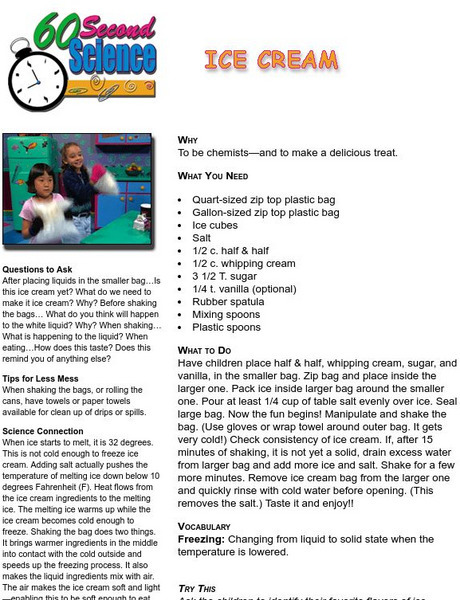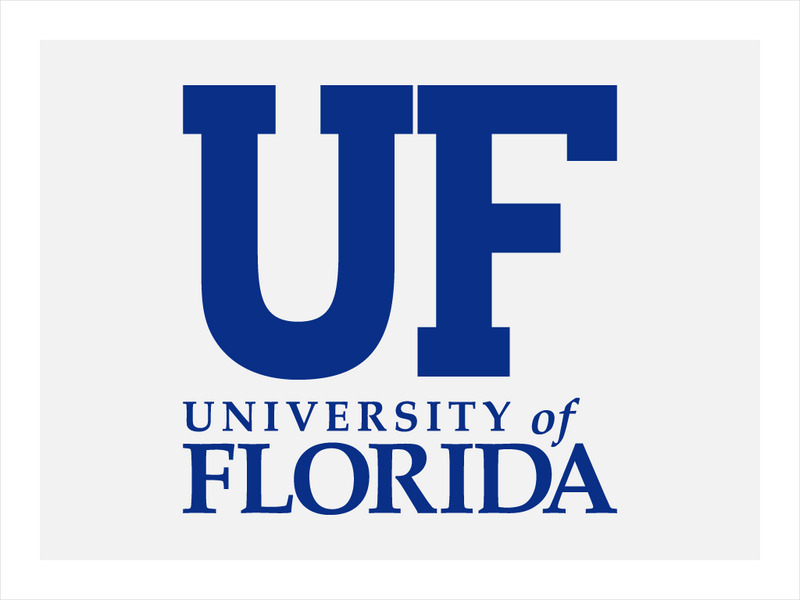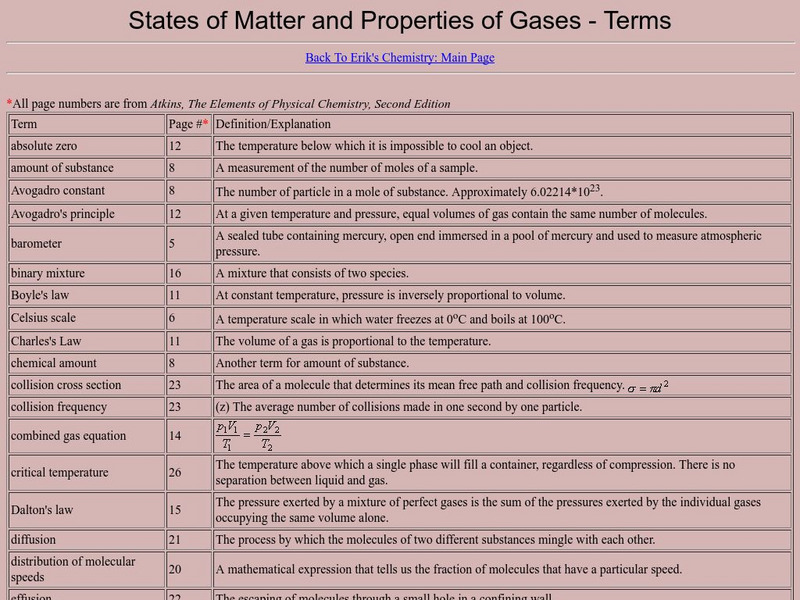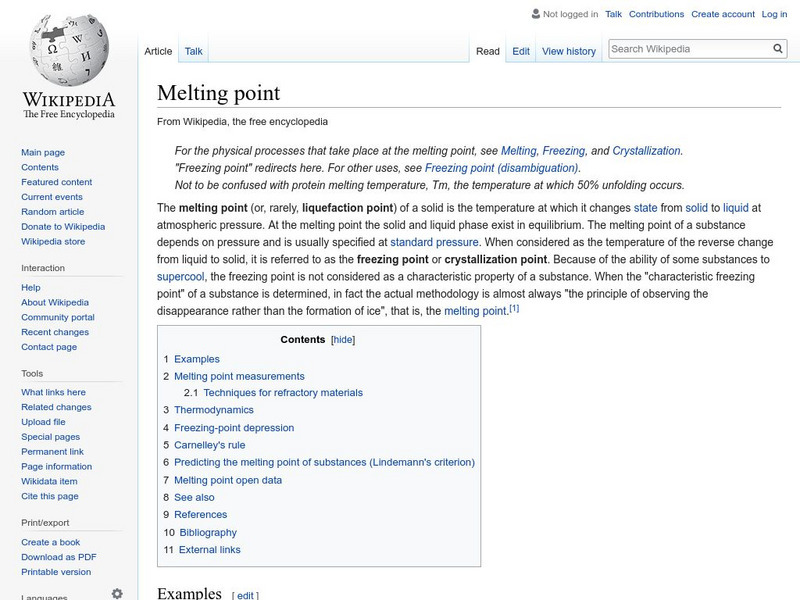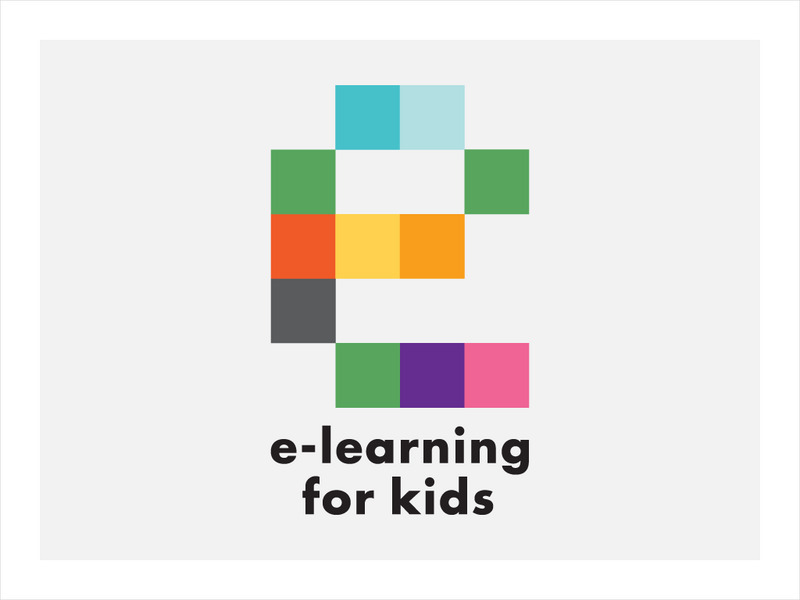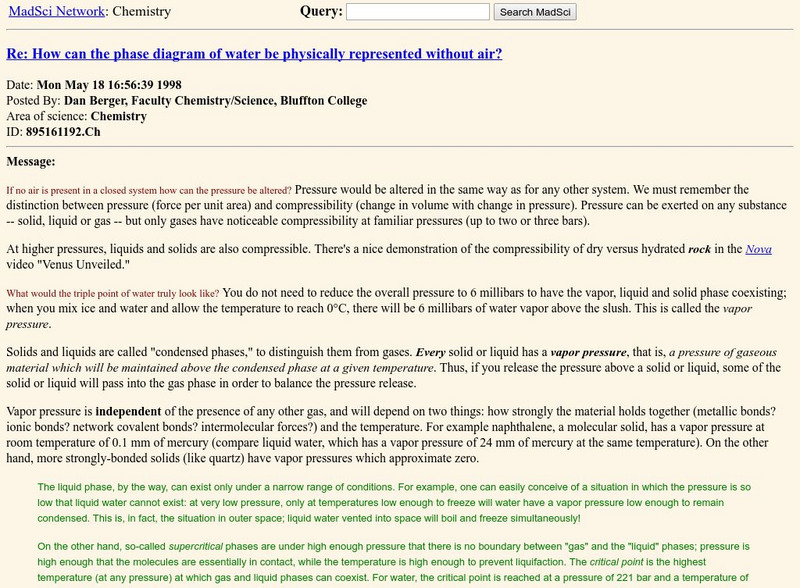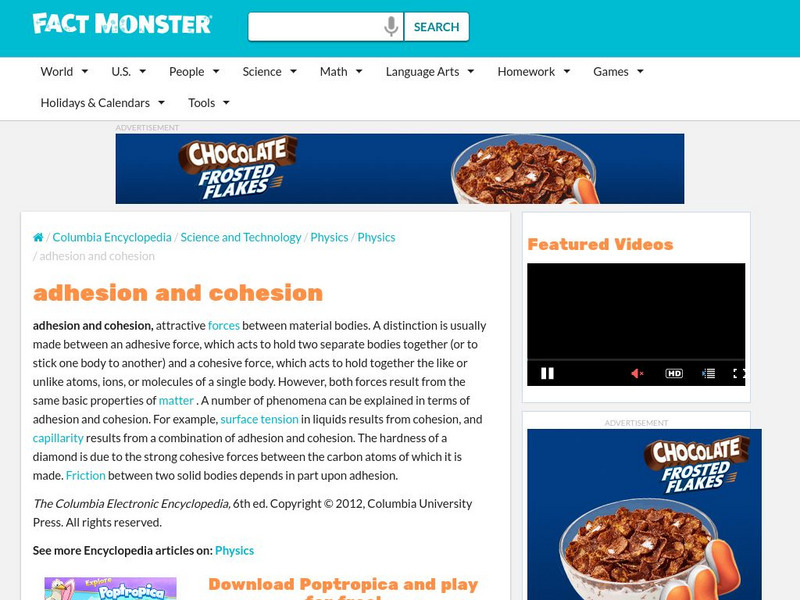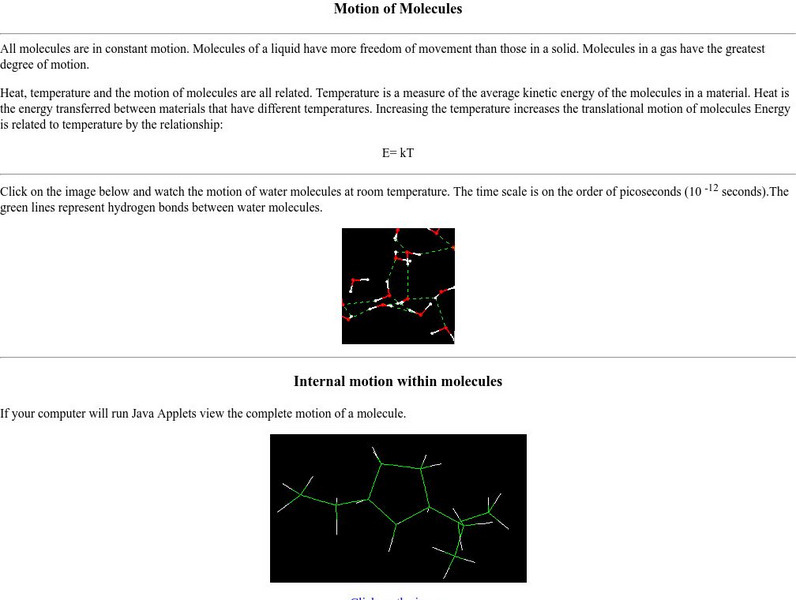Hi, what do you want to do?
Other
60 Second Science: Making Ice Cream
Discover how liquids can change to solids while making ice cream.
Other
Science Alive: Melting Point Simulation
Percy Julian and Josef Pikl used the fact that melting point-the temperature at which a substance changes from a solid to a liquid-is a characteristic property of a substance to prove that the British chemist Robert Robinson could not...
University of Florida
Chem. 2041 Lecture Notes: The Forces Between Molecules
A discussion of the variety of forces which hold molecules together. The relative strengths of these forces for the various states of matter is discussed. The effect of such forces on the boiling points and other phase change...
CK-12 Foundation
Ck 12: Physical Science: Freezing
[Free Registration/Login may be required to access all resource tools.] Explains what happens to matter when it freezes and the definition of freezing point.
Other
States of Matter and Properties of Gases: Terms
A very complete list of terms that are important to the study of gases. This resource is a web archive.
Wikimedia
Wikipedia: Melting Point
Wikipedia offers a brief description of the term, "Melting point," including hyperlinked terms.
E-learning for Kids
E Learning for Kids: Science: Bermuda Triangle: What Happens When an Object Gains or Loses Heat?
Learn about states of matter on a flight tour over the Atlantic Ocean.
Science Education Resource Center at Carleton College
Serc: Polymers & Plastics: Classification & Models
Young scholars will use their prior knowledge about changes of matter including physical and chemical changes to examine and categorize various types of plastics (polymers). They will identify how their chemical properties allow them to...
American Chemical Society
Middle School Chemistry: Changing State Freezing
Discover how freezing works, when the change of state moves from liquid to solid.
E-learning for Kids
E Learning for Kids: Science: North Sea: Denmark: What Happens When Materials Are Heated or Cooled?
Did you know that water has different states? Learn all about it with Boris in Copenhagen.
University of Notre Dame
Und: Properties of a Pure Substance [Pdf]
Often we find that different phases of pure substances can exist in equilibrium with one another. Let us consider an important gedankenexperiment (Latin-German for "thought experiment") in which we boil water. Ordinary water boiling is...
Museum of Science
The Atom's Family: Mighty Molecules
In this activity, students construct models of molecules using marshmallows and gum drops.
MadSci Network
The Mad Scientist Network: Chemistry
The question: "What would the triple point of water truly look like?" is discussed and explained. The phases of matter are described.
Ducksters
Ducksters: Kids Science: Melting and Boiling
Kid's learn about the science of melting and boiling. How matter changes state from solids to liquids to gases.
NC State University
The Engineering Place: Silly Stuff
An investigation into change of state where students make silly putty.
Fact Monster
Fact Monster: Adhesion and Cohesion
The forces of adhesion and cohesion are compared and contrasted. Various phenomena which can be explained by such forces are identified and discussed.
PBS
Pbs Teachers: Floating Paper Clips Experiment
Explore surface tension in water by making a paper clip float.
Children's Museum
The Children's Museum of Indianapolis: Exploding Baggies
Learners will witness a fascinating chemical reaction and learn how to identify when a reaction has occurred by combining simple ingredients.
Channel 4 Learning
4 L: Science Essentials: Material World
Learn about topics related to the material world. Each topic includes facts, a glossary, an interactive quiz, printable worksheets, an image bank, and web links.
New York University
Nyu: Math Mol: Motion of Molecules
Examine the link between molecular motion and energy. Observe the movement of a molecule at room temperature. Learn about the different types of molecular motion.





